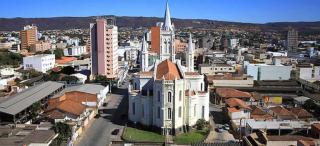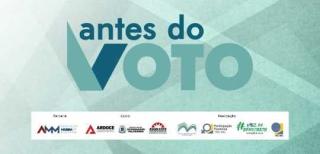Veja Também -
 Pessoas com TEA têm direito à cotas em concursos públicos
Pessoas com TEA têm direito à cotas em concursos públicos Governo de Minas fortalece o uso da linguagem simples
Governo de Minas fortalece o uso da linguagem simples Prefeitura de Montes Claros lança plataforma para emitir alvarás e agilizar construções na cidade
Prefeitura de Montes Claros lança plataforma para emitir alvarás e agilizar construções na cidade Minas Gerais entrega Medalha da Inconfidência a 171 personalidades e instituições
Minas Gerais entrega Medalha da Inconfidência a 171 personalidades e instituições Projeto 'Antes do Voto 2024' chega a Governador Valadares, Montes Claros e Uberlândia
Projeto 'Antes do Voto 2024' chega a Governador Valadares, Montes Claros e Uberlândia- Veja + Revelia News
Revelia News
Postado dia 01/02/2023 às 19:28:38
Argentina and Brazil should heed fate of the Bolivarian ‘sucre’

The idea that Brazil and Argentina would benefit from a common single currency to replace their respective legal tenders is groundless (“Doubts rise over ‘insane’ common currency plan”, Report, January 30). It would not make any sense for a country like Brazil, which has a consumer price inflation rate of 5.8 per cent and $330bn of international reserves, to bind its monetary destiny to a serial defaulting country like Argentina, where annual inflation runs at 95 per cent and which has less than $10bn of net international reserves.
Instead, the discussion between Brazil and Argentina has been focused on the introduction of a “unit of account” aimed at facilitating and boosting the bilateral trade between the two countries. This unit of account would neither serve as a medium of exchange nor a store of value, and it would, therefore, not match the definition of a currency.
An example of a unit of account that is not a currency is the IMF’s Special Drawing Rights. But the best comparison is the little-known Sucre (a Spanish acronym standing for “Unified System for Regional Compensation”), which was initially proposed by Cuba to facilitate the cross-border trade between the “Bolivarian” regimes (Bolivia, Cuba, Nicaragua and Venezuela). That initiative was meant to free those countries from the stranglehold of the dollar, not only because Bolivarian regimes are antiamericanistas by nature, but also because most of those countries have low international reserves and limited access to dollar funding for their imports. Unfortunately for them, the initiative was a complete failure with only a few — and all very small — transactions completed.
The reason for this failure is that such a framework inevitably ends up being a way for the countries with low reserves and a trade deficit to borrow cheap from those with high reserves and a trade surplus. And the latter have little incentive to adhere to such a system, beyond maybe an ideological satisfaction.
Coming back to the Sur (the proposed name of the unit of account between Brazil and Argentina), chances are very high that this project will have the same fate as the Sucre, and for the same reasons.
At the press conference, Brazil’s finance minister Fernando Haddad and Argentina’s economy minister Sergio Massa suggested the trade financing would be guaranteed by some stabilisation fund. But one can only wonder how Argentina could afford to feed such a fund if its access to dollars is so scarce. Unfortunately, giving a problem a different name does not help solve it.




